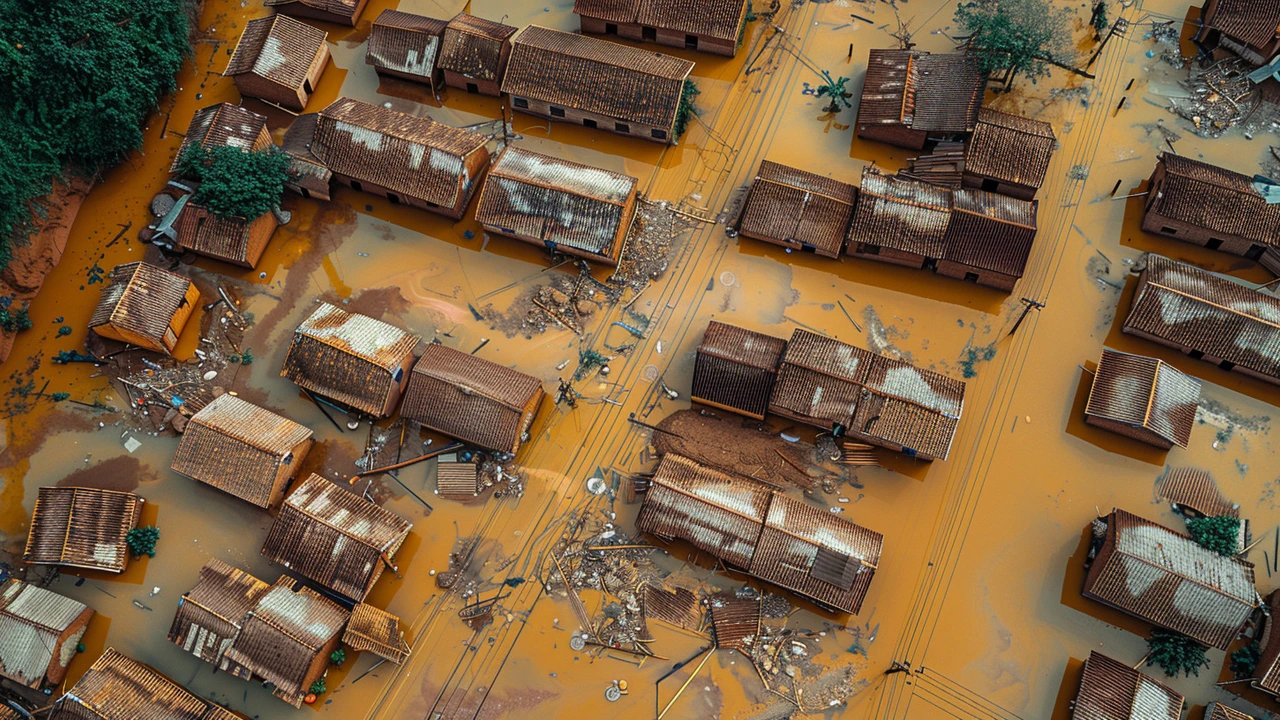-
5

Catastrophic Flooding in Southern Brazil: Record Rainfall and Mudslides Displace Thousands
Unprecedented Natural Disaster Strikes Southern Brazil
In a tragic unfolding of events, southern Brazil has been brought to its knees by a series of severe weather incidents. Nearly 70,000 people have been forced to abandon their homes due to the devastating effects of extreme flooding and mudslides. As the residents of Porto Alegre and its surroundings grapple with the chaos, the Guaiba River's water levels have shockingly risen to a record 5.04 meters, surpassing previous records and exacerbating the situation.
The Human Cost of Natural Catastrophes
The immediate human toll of this disaster is both stark and heart-wrenching. Official reports confirm that 57 people have lost their lives, while 67 others remain unaccounted for, leaving communities in agony and uncertainty. The injured count has also risen to 74, as many are caught in the sudden and unexpected nature of these events. Families are being torn apart, with thousands seeking refuge wherever safety is assured, yet the future remains uncertain for many.
Dire Conditions and Response
In what can only be described as critical, the conditions in affected areas have deteriorated rapidly. Over one million people are now facing a severe shortage of potable water, an essential resource that has become scarce due to the infrastructural damage caused by the floods. Relief operations are underway, with emergency services working tirelessly to evacuate at-risk neighborhoods and provide immediate assistance to those stranded by the water levels.
Government Action and International Aid
Addressing this calamity, Governor Eduardo Leite has stepped forward to advocate for substantial aid and reconstruction efforts. In a move reflecting the seriousness of the situation, he has called for a 'Marshall Plan' for the state of Rio Grande do Sul, which normally stands as one of the country’s most affluent regions. This proactive approach aims not only to recover what has been lost but also to fortify the state against future disasters. International eyes are on Brazil, as global communities and organizations begin to mobilize support and resources to aid the beleaguered state.
The Role of Climate Change and El Nino
Experts are converging on the opinion that this disaster is not a standalone event but a symptom of broader climate-related patterns. The escalation of extreme weather events in Brazil has been significantly linked to climate change and the El Nino phenomenon. These elements combine to create a 'disastrous cocktail' that disrupts typical weather patterns and intensifies rainfall and storms. As Brazil faces the brunt of these changes, the call for global climate action grows louder, underscoring the urgent need for environmental stewardship and innovative approaches to climate resilience.
In conclusion, as southern Brazil navigates through these trying times, the resilience of its people is tested. However, the spirit of determination and community shines through. With combined efforts from local authorities, international communities, and climate experts, there is hope that recovery can be swift and that future preparedness strategies will heighten the region's defenses against nature's unpredictability.
 Sports
Sports
Write a comment